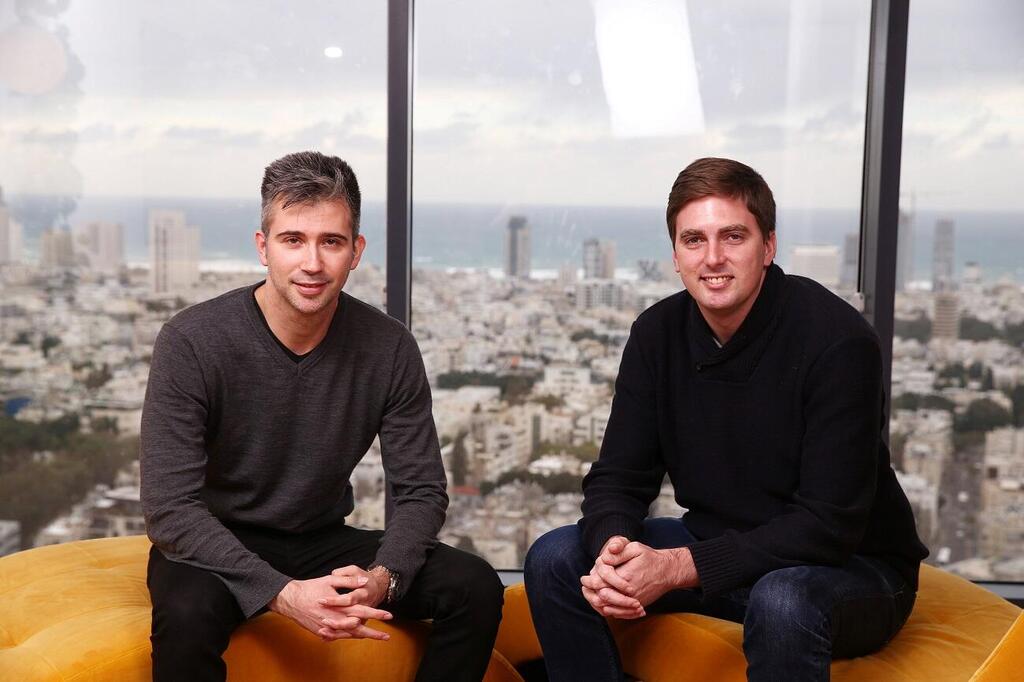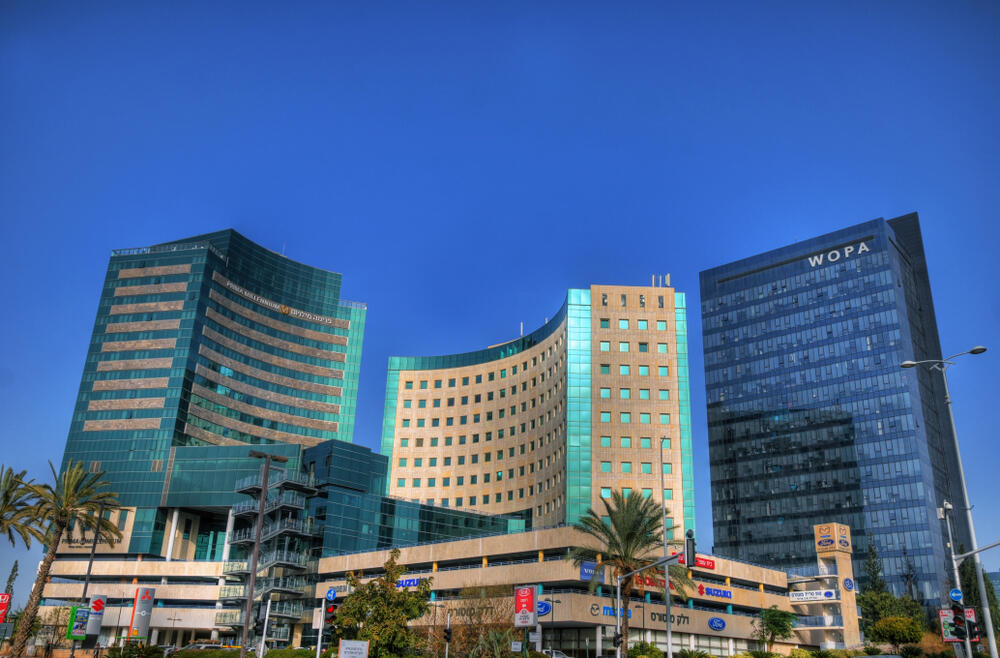Getting your Trinity Audio player ready...
While Israel grapples with state budget debates and reports of impending austerity measures, Israeli tech companies have quietly landed major fundraising rounds.
On Monday, cybersecurity firm Armis announced a $200 million raise, valuing the company at over $4 billion. Real estate tech startup Doorloop reported a $100 million round at a valuation of about $500 million and payments company Melio revealed a $150 million funding round, though its valuation was slashed from $4 billion in 2021 to $2 billion.
Surprisingly, despite the ongoing war and an economy on edge, Israeli high-tech seems to be rebounding with major capital influxes. Projections estimate a cumulative $10 billion will be invested in Israeli firms by the end of 2024.
Smaller rounds have also peppered the landscape: data management startup Matia raised $10.5 million in seed funding, health-tech company Target Pharma secured $5.1 million and several Israeli startups in cybersecurity and AI announced additional multi-million dollar raises this week.
The surge isn’t isolated. Last week, medical startup OneStep raised $36 million in a Series B round, and days prior, enterprise software firm Fort reported a $35 million Series B. In the last two weeks alone, capital raised has topped $500 million.
These figures continue a recent trend: in May, Israeli cybersecurity company Wiz raised $1 billion at a $12 billion valuation, and in April, cyber firm Ciera secured $300 million at a $1.4 billion valuation. Travel-tech startup Guesty also raised $130 million in the same period, valuing it at $900 million—just a few examples in an ongoing wave of substantial investments.
Venture capital investors familiar with Israeli high-tech say they aren’t surprised by the activity, calling this only a partial snapshot as many recent deals have yet to be announced. They describe Israel’s tech industry as largely insulated from local economic pressures, consistently delivering strong returns.
As global tech investment ramps up, Israel remains a key target for innovation investments, with many investors undeterred by local instability, credit downgrades and ongoing legislative changes.
'War is the new normal'
John Medved, CEO of OurCrowd, has been highlighting a market shift for months, saying, "I argued there was a drastic change underway, but people thought I was crazy, sticking to their doomsday predictions."
He noted a 32% rise in investment in Israeli high-tech firms during the first nine months of this year compared to the same period in 2023, outpacing the U.S., which saw a 28% increase, and Asia, where investment fell by 18%.
"This is a global phenomenon, and Israel is leading. People think I’m from another planet, but global tech trends impact Israeli high-tech more than geopolitics."
Rona Segev, co-founder and managing partner at TLV Partners, also observes the rising momentum among the firm’s portfolio companies. “It’s a clear trend shift compared to Q2 this year, with many rounds yet to be announced. We’ve had 12 Series A and B rounds—something we didn’t see in 2023. I’m unsure we’ll reach the 2021 highs, but optimism is certainly justified.”
Israeli high-tech leaders are adjusting their expectations after the boom of 2021, which, in hindsight, feels like a pipe dream. That year saw massive investments from major U.S. venture capital firms, artificially inflating valuations. The subsequent crash led to a sharp decline in funding, with many startups downsizing or closing and others selling at steep discounts.
In 2024, signs of recovery are emerging, despite ongoing security concerns, says Liran Grinberg, co-founder and managing partner at Team8. “We’re far from the investment pace of the 2021-2022 bubble, but there’s steady growth. Foreign venture funds active in Israel pre-war are wary, but they also see no reason to slow investment here.”
Yonatan Sela, a partner at Australian venture fund Square Peg, reports that three of the fund’s portfolio companies are completing rounds in the tens of millions of dollars, led by U.S. investors.
“I was glad to see American investors aren’t deterred by the situation. They’re adapting to a ‘new normal’ where Tel Aviv’s tech hub remains stable despite challenges at Israel’s borders,” Sela said.
Reports show American funds are driving most new investments. Recent rounds for Israeli firms like Armis, Ciera, Doorloop and Matia have been led by U.S.-based General Catalyst, Alkeon Capital, Coatue, JMI Equity, Leaders Fund and Secret Chord Ventures—smaller players than the big-name funds that fueled 2021’s highs.
“Recent rounds include newer players,” said Miriam Shtilman-Levbzovski, partner at Tal Ventures. “With major players stepping back, medium-sized funds are entering, bringing diversity to Israeli follow-on rounds, which is a welcome and valuable shift.”
A unique trend is emerging as foreign funds increasingly lead later-stage funding rounds for Israeli tech companies, taking on most of the risk and setting company valuations. Israeli venture capital funds are primarily participating to maintain their stakes, with limited resources to lead large funding rounds.
"Israeli funds don’t have billions at their disposal for such rounds,” said Yair Shamir, managing partner at Dell Technologies Capital. “Israeli founders prefer to raise from leading U.S. funds." Shtilman-Levbzovski echoed this, noting that foreign-led rounds signal confidence in the companies’ potential.
Yet, the question remains: how, amid a year marked by war, constant security threats, mobilization of thousands of tech workers and economic challenges—on top of widespread protests over judicial reforms—are foreign investors still returning to Israel?
“I think high-tech lives in a separate bubble,” said Segev. “Just before the first rocket strike, we signed a major acquisition for one of our companies, and minutes later, we closed another investment. Investors seem almost desensitized to these events.”
From a U.S. perspective, Sela sees sustained confidence in Israel’s tech sector. “After a year, investors see strong performance and business continuity. Entrepreneurs and employees work tirelessly to offset disruptions from military duty or personal crises.”
Maor Friedman, partner at F2 Venture Capital, believes judicial reforms have had more impact on the sector than the war. “The judicial reforms signaled instability and uncertainty to investors, while the war, although severe, didn’t undermine Israel’s viability. Many foreign funds entered Israel seeking attractive valuations, and some Jewish investors see supporting Israeli companies as a Zionist mission.”
Medved sums it up: “Israel leads globally, thanks to the exceptional people who shoulder the responsibility in the military, academia and high-tech. This generation of entrepreneurs is unparalleled.”
Get the Ynetnews app on your smartphone:




